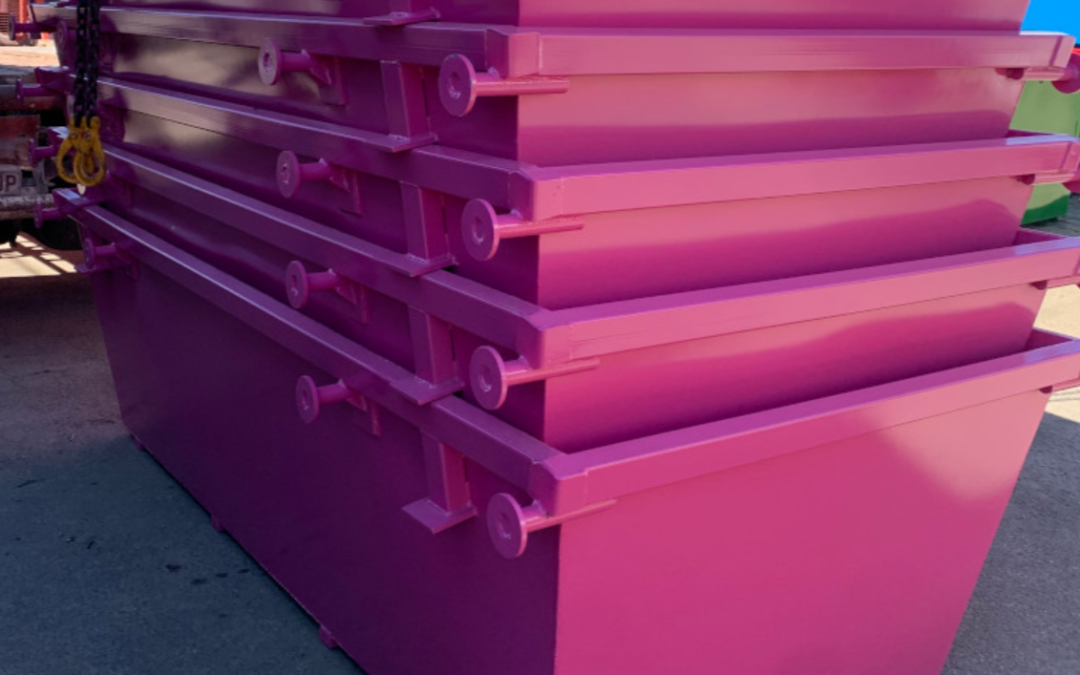Cost Comparison: Skip Bins vs. Trailer Hire
When choosing between skip bins and trailer hire, cost is a significant factor. The right option depends on the volume and type of waste you’re dealing with, as well as how much time and effort you’re willing to invest.
Volume and Weight Considerations
-
Small Waste Amounts (<1 cubic meter or <1 tonne):
Trailer hire is often the cheaper choice, with tip fees averaging around $300 plus GST. By comparison, hiring a small skip bin (2 cubic meters) costs approximately $407. -
Medium Waste (1–2 tonnes):
Most tips charge a minimum of 2 tonnes, costing $600 plus GST. Meanwhile, a mini skip bin (2 cubic meters) costs around $407 and typically has no weight restrictions, making it a more economical option in this range. -
Large Waste Amounts (>2 tonnes):
For larger volumes, skip bins are usually more cost-effective. For instance:- 6 tonnes of waste at the tip: $1,800 plus GST.
- 6 cubic meter skip bin hire: $817.
Cost Breakdown
-
Small Waste Amounts (<1 tonne):
Taking waste to the tip with a trailer is often cheaper, costing around $300 plus GST. -
Larger Waste Amounts (>1 tonne):
Skip bins provide better value, particularly for heavy or high-volume waste.
Skip Bin Pricing Guide:
- 2 cubic meters: $200–$350 per day
- 3 cubic meters: $380–$460 per day
- 4 cubic meters: $400–$515 per day
- 6 cubic meters: $630–$760 per day
- Larger skips (e.g., 12 cubic meters): $1,250–$1,600 per day
Specialized Waste
For recyclable materials like cardboard or metal, taking a trailer to a specialized recycling center may be free or significantly cheaper than hiring a skip bin.
Time and Effort
-
Trailer Hire:
Requires you to load, transport, and unload waste multiple times. -
Skip Bins:
The company handles delivery and collection, saving you time and effort. This makes them ideal for larger projects or when convenience is a priority.
Environmental Considerations
When comparing the environmental impact, skip bins often have an edge:
-
Waste Sorting:
Skip bin services often include waste sorting, promoting recycling and reducing contamination. Trailer hire generally doesn’t offer this service. -
Resource Recovery:
Many skip bin providers focus on recovering recyclable materials like metals and plastics, helping reduce the need for raw materials.
Practical Strategies for Sustainability:
- Using a skip bin promotes better waste segregation and recycling.
- Many skip bin services ensure that recyclable materials are diverted from landfills, reducing environmental pollution.
Additional Considerations
-
Waste Volume and Type:
- Less than 1 cubic meter or under 1 tonne: Trailer hire is generally cheaper, with tipping costs around $300 plus GST.
- Single recyclable waste types (e.g., cardboard or metal): Trailers are often better for easier sorting and transport.
-
Time and Convenience:
- Trailers are more economical if you have time to make multiple trips to the tip.
- Skip bins save time by allowing you to dispose of waste on-site, with collection handled by the provider.
-
Flexibility:
- Trailers can be moved between locations and are easier to load in tight spaces, making them ideal for short-term or smaller projects.
- Skip bins are better for stationary, high-volume jobs.
-
Cost Structure:
Trailer hire usually has a flat rental fee, making it predictable for budgeting. Skip bins, however, may incur additional costs for delivery, collection, and weight limits.
Conclusion
Choosing between skip bins and trailer hire comes down to your priorities:
-
For Small Waste Amounts (<1 tonne):
Trailers are the more cost-effective choice, especially for recyclable materials or single loads. -
For Larger Volumes (>1 tonne):
Skip bins are typically the more practical and economical option, offering greater convenience and the potential for reduced environmental impact.
Skip bins are ideal for busy homeowners or large-scale projects due to their efficiency and ease of use, while trailers are a good choice for smaller jobs or those on a tighter budget.




Recent Comments